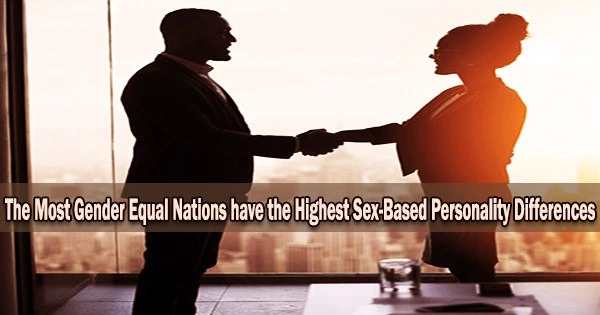The University of Gothenburg, University West, and the University of Skövde recently conducted research that found that in nations with higher levels of gender equality, men and women’s self-rated personalities diverge more.
In the study, a validated personality test was completed by more than 130,000 participants from 22 different nations. The “big five” personality traits openness, conscientiousness, extraversion, agreeableness, and neuroticism were measured by the test. These traits are recognized as the most widely used classifications in personality research.
The average disparities between personality scores for men and women in each nation were calculated, and they were then contrasted with that nation’s level of gender equality as determined by the World Economic Forum.
The study confirmed prior research by demonstrating that greater gender equality was linked to greater personality disparities between the sexes. Countries with extremely high levels of gender equality, like Sweden and Norway, demonstrated personality variations between the sexes that were roughly twice as large as those with significantly lower levels, like China and Malaysia.
Furthermore, women generally rated themselves as more worried (neuroticism), social (extraversion), inquisitive (openness), caring (agreeableness) and responsible (conscientiousness) than men, and these relative differences were larger in gender equal countries.
A possible explanation is that people in more progressive and equal countries have a greater opportunity to express inherent biological differences. Another theory is that people in progressive countries have a greater desire to express differences in their identity through their gender.
Petri Kajnoius
“Insofar as these traits can be classified as stereotypically feminine, our interpretation of the data is that as countries become more progressive men and women gravitate towards their traditional gender norms. But, we really don’t know why it is like this, and sadly our data does not let us tease out the causal explanations,” says Erik Mac Giolla, Ph.D. in Psychology.
“A possible explanation is that people in more progressive and equal countries have a greater opportunity to express inherent biological differences. Another theory is that people in progressive countries have a greater desire to express differences in their identity through their gender,” says Petri Kajnoius, Associate Professor in Psychology and Behavioral Measurements.
A combination of social role theory and evolutionary perspectives may ultimately be needed to explain these findings.
















